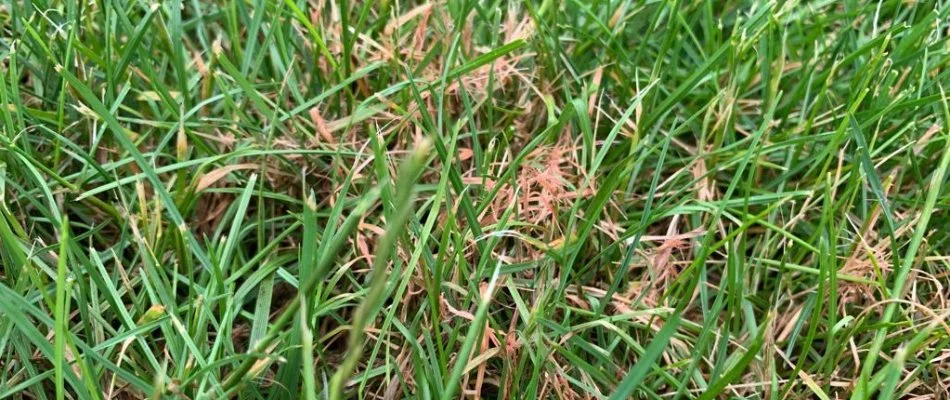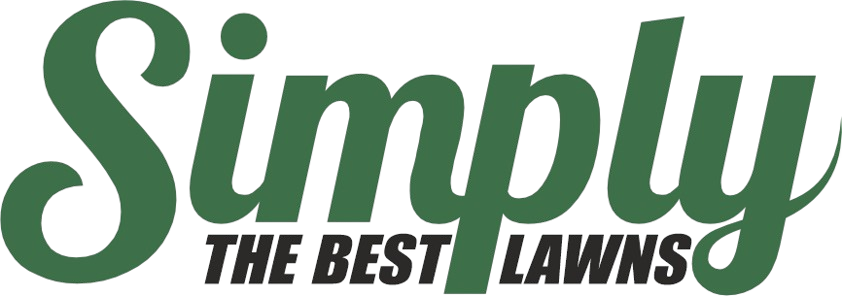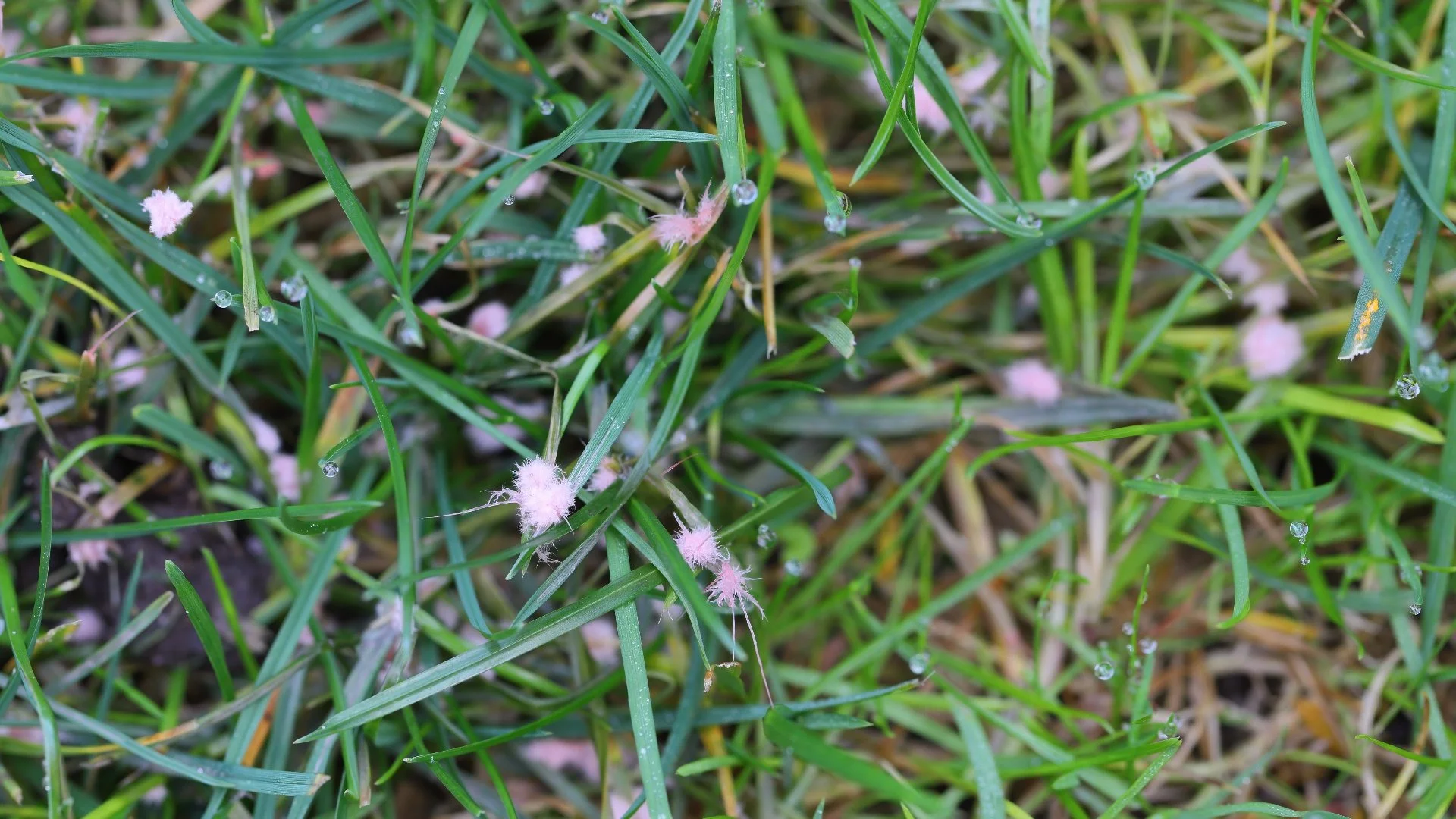Red thread is a fungal disease identified by pinkish-red patches on grass blades, marked by thread-like structures, especially during high humidity. Though it doesn’t kill the roots of grass, it weakens plants, leaving them vulnerable to stress. This disease primarily affects ryegrass, fescue, and bluegrass and thrives in cool, wet weather, especially in nitrogen-deficient lawns with poor drainage and thatch buildup. If red thread is present in your lawn in New Jersey, contacting lawn care professionals is crucial so they can apply a curative treatment to eliminate it. Investing in regular lawn care services, including fertilization, aeration, and overseeding, enhances lawn resilience, helping prevent future outbreaks.
What is red thread, and what does it look like?

Red thread is a fungal disease characterized by small, pinkish-red patches that can appear on grass blades. These patches typically measure 2 inches to 3 feet in diameter, and if examined closely, the grass blades may be seen covered with pink or red thread-like structures, especially during high humidity.
The pinkish hue is due to the presence of fungal threads, known as sclerotia, which protrude from the grass blades. Although red thread doesn’t kill the roots of your grass, it can weaken the overall plant, leaving it vulnerable to further stress and damage. The disease primarily affects ryegrass, fescue, and bluegrass, but under conducive conditions, it can spread across other grass types as well.
What conditions are conducive to the development of red thread?
Red thread thrives in cool, wet weather conditions, making it most common in the spring and fall. This disease is also more likely to develop in lawns that are low in nitrogen, as nitrogen is an essential nutrient that helps grass grow strong and healthy. Lawns that are overwatered or have poor drainage are also more susceptible to red thread, as excessive moisture can create an environment that is conducive to the growth of the fungus.
Additionally, lawns that are not regularly mowed or have a lot of thatch buildup are more likely to develop red thread, as these conditions can create a barrier that prevents air and sunlight from reaching the grass blades, making them more susceptible to disease.
What should you do if your lawn is infected with red thread?
If your lawn is infected with red thread, it is important to act quickly to prevent the disease from spreading and causing further damage to your grass. The first step is to contact lawn care professionals to have them come out to your property to inspect your lawn. If they determine that your lawn is suffering from red thread, they will apply a curative treatment to your lawn to eliminate this disease from it. Once the disease has been eliminated, you'll want to invest in lawn care services to help your lawn recover and stay resilient to diseases in the future, including:
- Lawn Fertilization: Fertilizers supply your lawn with the nutrients it needs to grow strong and healthy. A well-fertilized lawn is less susceptible to diseases like red thread.
- Aeration: Aeration involves removing small cores of soil from your lawn to allow air, water, and nutrients to reach the roots of your grass. This process improves drainage on your lawn to avoid moisture from building up while also bolstering its resilience to fight off diseases.
- Overseeding: Overseeding involves spreading grass seeds over your existing lawn to thicken up your turf. This process will make your lawn denser and more resistant to diseases!
Call us today to schedule our red thread disease control service!
At Simply The Best Lawns, offer a red thread disease control service to get rid of this disease from your lawn. This service involves applying 3 curative treatments on your lawn to fully eliminate the issue. Our team offers this service to commercial and residential properties, along with HOAs, in Wayne, Bridgewater, and Flemington, NJ. This service is also offered to Hunterdon County, and other nearby counties like Morris, Passaic, Essex, Bergen, Somerset, Sussex, and Warren. Call us at (973) 232-1776 to schedule this service!



